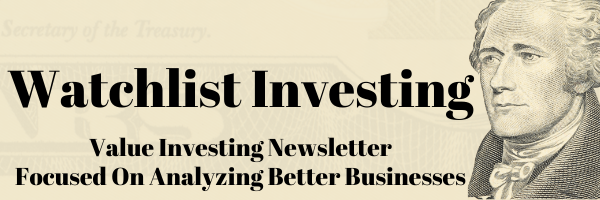Yes, the title of this post is click-bait-y. I’m not here to justify the seemingly high valuations in the current stock market (more in the general commentary section). It’s the proliferation of low-to-no-cost trading and the advent of fractional shares that has my interest this month. On the surface such marvels of modern finance would seem to be a good thing—many argue they are. I disagree.
Frictionless trading and fractional shares present a paradox of sorts. From a purely rational standpoint they are positive. Commissions and bid-ask spreads are a drag on investment returns that can and should be minimized, and fractional shares allow those with less capital to participate as owners in companies with high share prices. But in the hands of humans, who have flaws, they create conditions for sub-par investment returns. Why? Because they push thinking further from the ultimate source of investment returns: business fundamentals.
Technology has at the same time allowed the cost of trading to come down while sowing the seeds of the very factors that negate its advantages. There is a real cost to transferring ownership of shares in companies, which used to require more human involvement, more paper, and more time. Computers allow these things to happen faster and more efficiently. But more computing power put stock exchanges in our phones, in our pockets. Is human civilization better
off because I can buy and sell shares before even leaving my bedroom in the morning? Or even in the shower: “Hey Alexa, find out who made this shampoo and buy nine-and-a-half shares.”
Human flaws are exposed by the lack of friction in trading shares. Without any restriction on speed, the trading application can descend into a casino-like atmosphere. Robinhood, a popular online trading application, features many of the same attention-seeking attributes as slot machines: price-change notifications, flashing lights, and rewards not tied to business fundamentals. How can one conclude anything other than that the promotors of such applications and platforms aren’t using clever psychological tricks to attract and retain users? Count me cynical of the social good these companies proclaim.
Fractional shares are not an entirely new innovation. Owners of mutual funds and shareholders of companies with DRIP (dividend reinvestment plans) long have had the ability to own less than a full share. Modern fractional share ownership has taken this to the extreme. Why is it necessary to own one-millionth of a share? How can the “investment” of one dollar into a company really bring the same attitude of ownership as a that of a commitment representing a meaningful portion of an individual’s net worth?
There must be a logical sweet spot of sorts for the price of shares that encourages holders to think like owners and discourages overtrading. Perhaps the cost of human existence provides an answer. Clearly someone who can’t afford a meal isn’t going to benefit in any real way from the ability to buy into a company for less than the cost of a loaf of bread—there are other ways society should help the less fortunate. My best guess is the monthly price of housing. I’d venture that if all share prices were adjusted to be in the range of $1,000 to 2,000 per share that more rationality would pervade the market. Individuals would think harder about which companies they wanted to own and would trade less often. And yes, at the beginning someone saving would be too concentrated by the pure percentages, but the absolute dollars would be small, and diversification would happen as additional saving occurred.
Parking lots have speedbumps for a reason. They serve to slow down the driver and remind them that they should pay attention. Likewise, with trading, higher transaction costs and higher share prices would slow down buyers just enough to increase the probability of safety for all.

